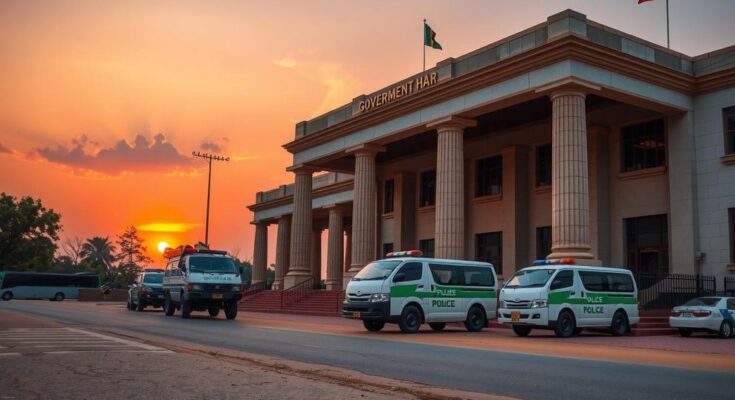Recent arrests in South Sudan, including that of peacebuilding minister Stephen Par Kuol, reflect escalating political tensions amid fears of renewed civil war. Church leaders and analysts express concern over the implications, urging dialogue to prevent violent fallout. The government has accused Machar’s faction of collusion with the White Army militia, heightening the crisis in the region. The postponement of elections further underscores the instability.
The situation in South Sudan has escalated significantly as government forces continue to arrest allies of First Vice-President Riek Machar. Notably, the peacebuilding minister, Stephen Par Kuol, was detained, prompting concern among church leaders about the potential for renewed civil war. This series of arrests follows earlier detentions of the petroleum minister and senior military officials linked to Machar.
Intensified violence has also erupted in the Upper Nile State, where skirmishes occurred between national forces and the White Army militia, which comprises mostly armed individuals from Machar’s ethnic group, the Nuer. The these arrests and military actions are causing alarm among observers of South Sudan’s fragile peace.
The government has not publicly addressed the recent arrests, but Information Minister Michael Makuei accused Machar’s faction of complicity in assaults targeting military installations. The White Army previously fought alongside Machar during the civil war that lasted from 2013 to 2018, which resulted in hundreds of thousands of casualties and widespread displacement. Although a 2018 peace agreement has largely curtailed major hostilities between Kiir and Machar’s factions, isolated violence persists, exacerbated by conflict in neighboring Sudan.
Minister Kuol played a part in the peace negotiations that led to the 2018 agreement, and his arrest marks a worrying trend. Church leaders have expressed growing concern over the rising political tensions and insecurity, emphasizing the need for dialogue. Analysts warn that continued arrests may provoke retaliatory attacks from opposition-linked armed groups against government positions.
Additionally, national elections planned for December 2023 have been postponed until December 2026, reflecting the government’s acknowledgment of the current instability and the need for better preparation, underscoring the dire circumstances in South Sudan’s political landscape.
In summary, the recent arrests of key political figures in South Sudan, including Minister Stephen Par Kuol, point towards escalating tensions that risk rekindling civil conflict. The involvement of the White Army militia and accusations from the government indicate a precarious situation. Observers urge dialogue and caution, noting that the postponement of elections further complicates the quest for political stability. The ongoing strife underscores the fragile nature of peace in South Sudan and the urgent need for a diplomatic resolution to avert further violence.
Original Source: www.timeslive.co.za




